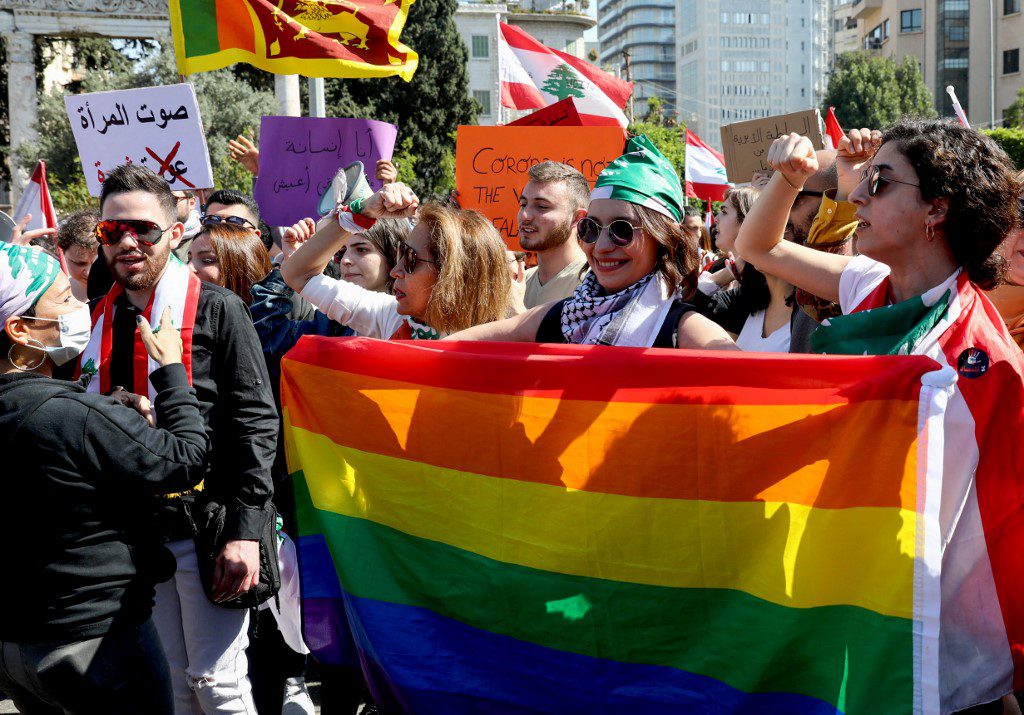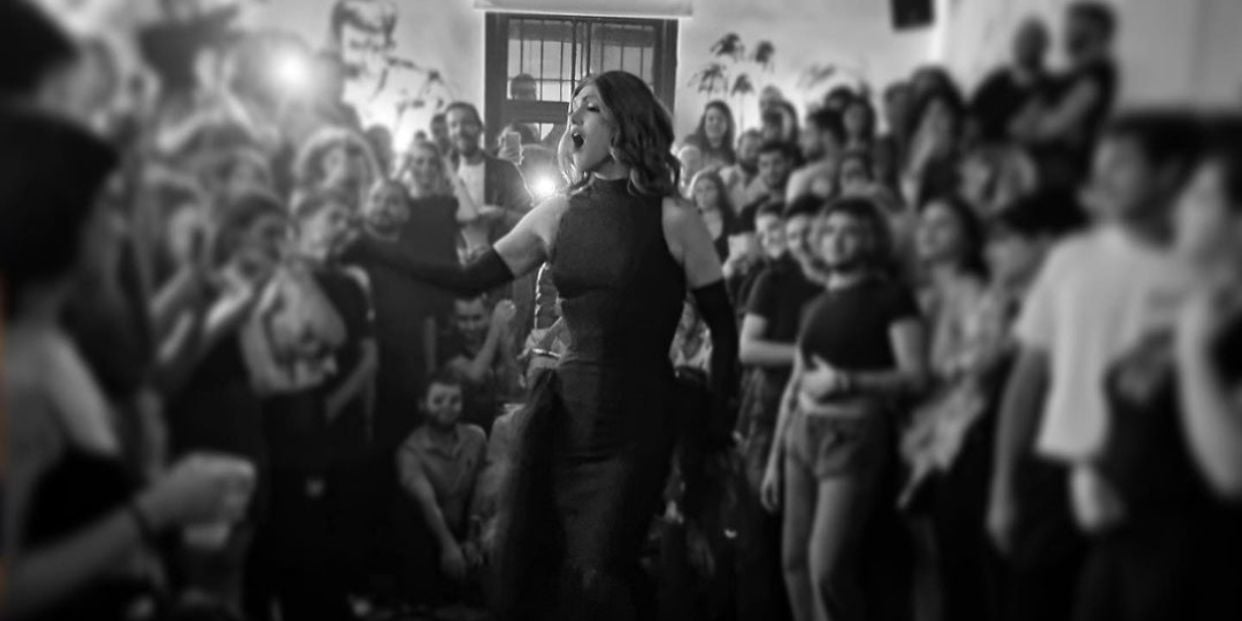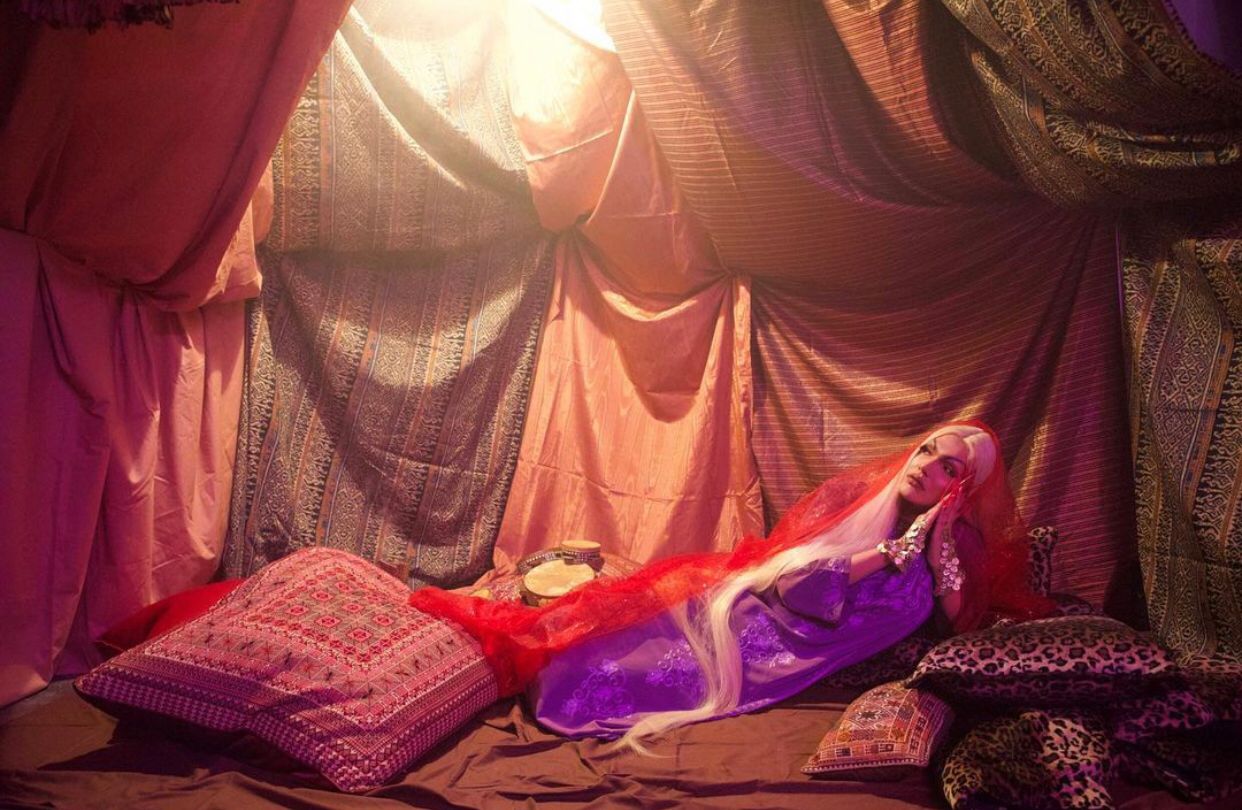
Dana Hourany
Growing up as a queer person in Lebanon in the early 2010s meant navigating hostilities, homophobia, and prejudices – prejudices that were only reinforced by local media. With late night talk shows pitting members of the LGBTQ+ community against religious officials or so-called comedy sketches boasting stereotypical and erroneous representations of gay men for comic relief and ratings, it is no wonder that many queers often turned to the metaphorical closet as a means to remain safe from what is an otherwise homophobic world.
However, in the digital age of social media, the LGBTQ+ community in Lebanon is combatting stereotypes and providing diverse representations of various genders and sexual orientations. This has created a safe space for many queer Arabs to join in what has increasingly become a collective call for freedom of expression.
“My family is tolerant and this is a privilege that I acknowledge; a privilege that many people do not enjoy. And this is why I feel it is important to put myself out there so that others do not feel alone, so that they feel that there is someone out there who shares their dreams and aspirations as well as their struggles and grievances,” Shaden, a Lebanon-based comedian and LGBTQ+ activist, told Fanack.
Shaden is no stranger to Lebanon’s restrictions. The comedian, who uses her social media platform to openly and unapologetically talk about issues pertinent to the queer community in general, lesbians and women in general, has been summoned for interrogation by the cyber crimes unit of state security several times.
Nevertheless, for the LGBTQ+ community, Lebanon remains among the most socially tolerant of all Arab countries. Despite the fact that there are no laws granting LGBTQ+ people the same rights as heteronormative individuals, Beirut harbors a variety of queer-friendly neighborhoods and spaces.
The same cannot be said for online places, where individuals are exposed to a multitude of abuses and hate speech as well as smear campaigns and attempts of digital assassination. And queer creators are all too familiar with this story.
Fighting for freedom of expression

Covid-19 and endless lockdowns in Lebanon proved detrimental to up-and-rising alternative communities who have for years tirelessly and relentlessly worked to carve a space for themselves to not only showcase their art but to eke a living. Then came the Beirut port explosion. The massive blast that killed over 250 people in 2020, devastated LGBTQ+ support centers and gay-friendly spaces, which were a key lifeline for an already vulnerable community.
Beirut’s drag community is one such example. Kawkab Zuhal, a popular drag queen who uses humor and art to educate on queer topics and mental health issues, is among many of her peers who took to social media as a means to reach audiences and make a living in the wake of the devastation. As Zuhal’s followers grew on social media platforms, so did the number of harassers and mass-reporters. Her accounts have been shut down and restricted on several platforms for allegedly violating community guidelines.
Just last month, Zuhal’s instagram account was banned. Since then, an online campaign was launched to support the drag queen, and her account was restored.
Sultana, 25, Zuhal’s friend and fellow drag queen was notified by Instagram that her account was one reported post away from being removed.
“Social media is like an archive for us [drag queens]. It’s all your work and portfolio. It’s very frustrating to think it all could go in one day, but we have to be ready just in case,” Sultana told Fanack.
Sultana uses her position to promote the idea that, contrary to mainstream conservative Arab cultural standards, being Arab and queer are not mutually exclusive concepts. As a result, a large number of LGBTQ+ people from the Gulf have reached out to the drag queen, expressing their joy at having found a role model.
“They send me images of themselves doing drag for the first time, displaying their makeup or custom-made clothing, and I try to respond to all of them because, at the end of the day, this is what I came here to do,” Sultana said.
Sultana, like other Arab LGBTQ+ youth, felt lonely and alone as a youngster. She joined Twitter as a teenager to express herself freely because she couldn’t do so in her conservative family. She told Fanack that she commonly felt out of place and partly blamed lack of representation and misrepresentation in the media, particularly representations that openly mocked non-heteronormatives and boxed them as a certain stereotype or trope.
“Because there was nothing else available, I know members of the community who embraced such stereotypes at their own detriment. They didn’t know any other possibility existed, so they copied what they saw,” Lea Zraika, a 32-year-old trans woman, told Fanack.
Coping mechanisms
Members of Lebanon’s LGBTQ+ community have for years been breaking down conventional barriers in order to provide individuals with the representation they lacked growing up. This of course meant that they had to face a slew of homophobic and harmful encounters and experiences.
Shaden uses humour to openly talk about gay rights and LGBTQ+ issues. Despite the hate and criticism she encounters, she maintains that she has the internal strength to persevere. The support of her online fanbase and friends and family also act as an additional barrier.
Zeina* (not her real name), an openly lesbian DJ uses her Instagram to showcase her craft and to support gay rights. However, she practices caution, is selective when it comes to her follower base, and does not hesitate to block those who express homophobic sentiments.
Victoria Moufarejj, a gender-neutral content creator, says she deletes all hate comments and blocks homophobic users. It is a protection mechanism she developed in the wake of years of social media bullying.
“I don’t allow the hate comments to accumulate because if they do, I might spiral down into a dark place,” Moufarejj told Fanack.
Moufarejj told us of a friend who went by “borderline_enby” or “Sam” on the social digital platform TikTok. Sam – who was a transgender content creator – was outed to their family members by an anonymous person, using their tiktok videos as proof. As a result, Sam committed suicide in December of last year.
There are currently no legislative protection measures in place in the Arab world to protect queer individuals from harassment, bullying, and even death threats, whether online or offline.
Finding safety again

Protracted crises in Lebanon have weighed heavily on the already marginalized queer community. The downfall of the economy, the currency collapse, the Beirut blast, and the epidemic have all but decimated the once burgeoning scene. But people are fighting back.
Sultana has been able to migrate her artistry from the stage to social media, where she remains connected to her fans, regularly posting videos of herself lip-synching and performing. Zeina and her friends have recreated their own safe space in a Beirut suburb away from the scene of the blast; a place where they can pick up where they left off. Where they can throw queer parties and host members of the community that need temporary shelter.
But for the wider community, matters remain more challenging. Lebanon’s once buzzing nightlife scene – one that provided a safe haven for trans and queer people, and moments of reprieve from daily life – is far from recovering.
The economic crisis and the collapse of the local currency rendered lifeless all that remained. In November last year, for example, Bardo -one of the country’s oldest gay bars- shut down indefinitely, citing the economic situation and financial problems.
But Sultana is not giving up. In fact, she is getting ready for her upcoming performance slated for the end of the month. For her, getting back on stage after a two-year hiatus is worth all the harassment she may experience online and in real life.
“To live is to fight and to fight is to live. I believe it is our obligation to show the younger queer generation that they can survive despite all of the hate and violence they may encounter. We’re here, Arab and queer and we are here to stay,” she said.


